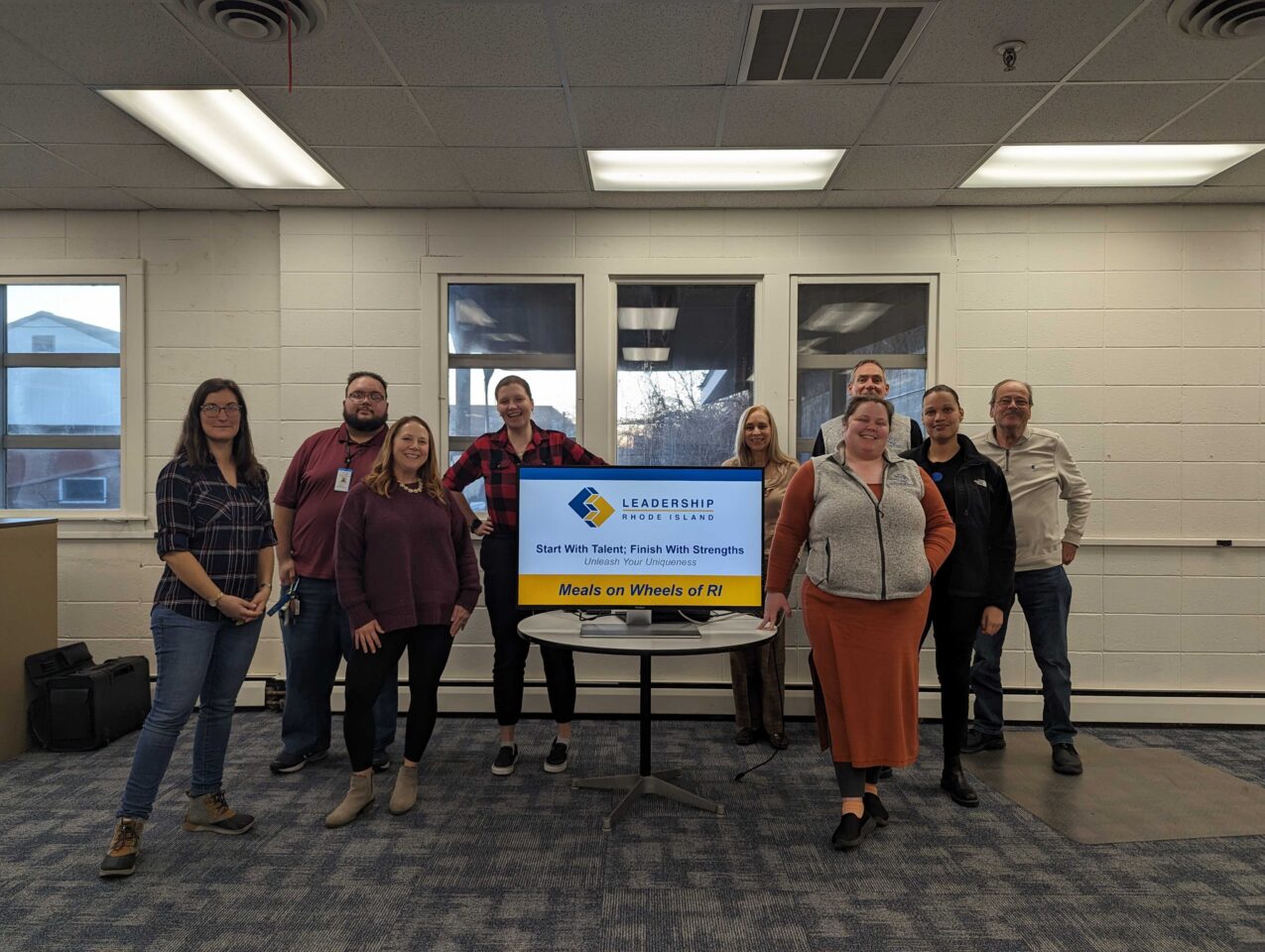By Christine McDermott, 2011 Eta II | 12/31/2024
Meals on Wheels Reaches Strengths-Based Destination

During the height of the pandemic, not only did Meals on Wheels of Rhode Island staff operate without interruption, they handled a surge in service from 1,000 to 4,000 home-delivered meals a day.
Executive Director Meghan Grady, LRI 2023 Tau II, could not have been more proud.
“We really saw our team develop a deep camaraderie and a strong bond because of the pressure that we were under to not only meet new and increased demand, but also in a time that was dangerous to everyone’s health,” she recalls.
“We were on the front lines, we were in the trenches. As a result, we called ourselves ‘delivery heroes’.”
As the public health environment improved and Meals on Wheels returned to normal operations, Grady wanted to preserve the sense of togetherness and determination that got the team through the pandemic.
With that goal in mind, Grady reached out to Leadership Rhode Island about helping Meals on Wheels become a “strengths-based” operation.
“I thought that it would help ensure our progress as an organization, and I thought that it might help us communicate in a changing, dynamic environment,” she says. “And I also thought it would help us extend that camaraderie to a new level.”
Meals on Wheels launched its three-year CliftonStrengths training program in 2022 with an orientation session led by strengths coach Marcus Jannitto, LRI 1997 Rho, a retired brigadier general, who has delivered meals for the non-profit.
About 20 team members – a diverse group in age, ethnicity and expertise – attended that first meeting.
Three years later, all 35 members of the staff, including the five top executives, have taken the Clifton Strengths assessment and the staff has attended numerous training sessions, in large and small groups, to learn how to take strengths into account when assigning tasks, creating work groups, and when offering feedback to others.
In all, five LRI coaches have been dispatched to work with the staff.
The organization’s Board of Directors also has invested time in the strengths effort. Sixteen members took the strengths assessment — three others already knew their strengths from assessments elsewhere.
Board members participated in three coaching sessions during which they learned to use strengths when creating board committees, evaluating the performance of the executive director, and to better understand how the staff is organized.
Renzo Arteta, 2019 CLRI, LRI’s senior training manager, says all employees have been surveyed twice, once in 2023 and again in 2024, to gauge the degree of employee engagement.
The online survey, developed by Gallup, produces results showing how a particular organization’s employee engagement compares with organizations worldwide.
Grady says she now considers Meals on Wheels a strength-based organization, the goal of the multi-year strengths journey. Still, she has sought an extension of its contract through 2025 to get training for onboarding new employees, more training for managers, and another Gallup survey on employee engagement.
Arteta, who supervises the trainings and has reviewed the results of the two employee surveys, says he is comfortable with Grady’s assessment that Meals on Wheels is a strengths-based organization.
The LRI strengths initiative does not award official certificates for strength-based status, but Arteta relies on certain criteria, drawn from Gallup’s literature, to guide clients seeking to become strengths-based organizations:
- Everyone is aware of their strengths.
- Management consistently refers to strengths in work-related conversations.
- Commitment to a strengths agenda is embedded in the organization’s strategic plan.
- Strengths are emphasized in the orientation of all new hires and development of staff.
“When you walk into our organization, you see our strengths wall,” says Shana DeFelice, 2024 Upsilon II, programs and mission impact director. “Every team member’s name and strengths are on display. We have worked strengths into everything we do.”
That includes morning meetings, where people’s strengths are considered when tasks are assigned for the day. Strengths are part of performance evaluations, coaching and team check-ins.
“By being a strengths-based organization, we’re more effective and that translates into how we deliver our mission,” Grady says.